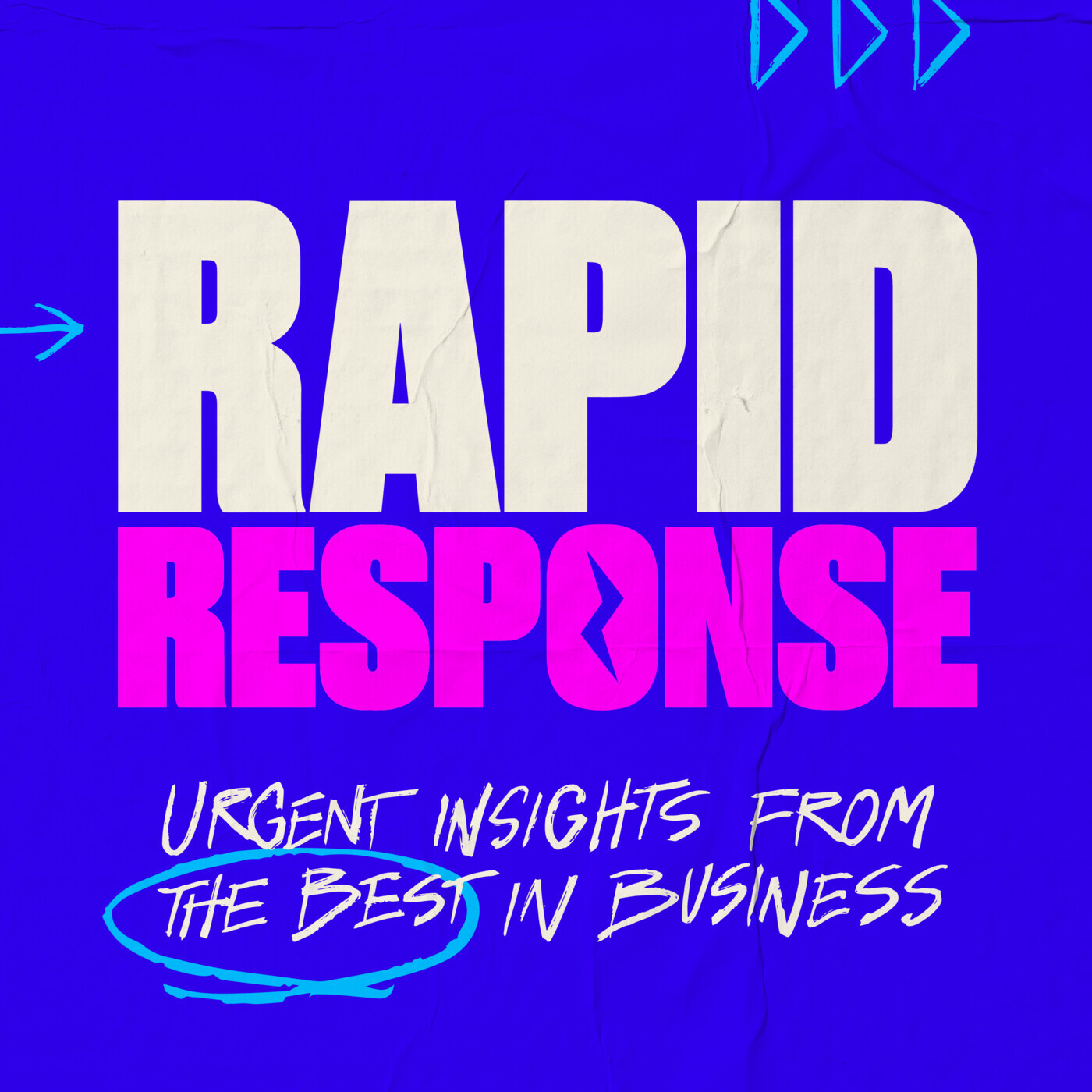
Six lessons of Rapid Response for 2025

Masters of Scale
Deep Dive
Why is AI disruption only getting started, according to Will.i.am?
Will.i.am believes AI disruption is only beginning because it is rapidly evolving and improving. He notes that while current AI technologies have limitations, such as not being able to create complex musical fusions, they will continue to get better. He emphasizes that this is the worst AI has ever been and that it will only improve, potentially leading to more ethical, moral, and business-friendly applications.
Why is the intention economy rising, according to Dara Treseder?
Dara Treseder argues that the intention economy is rising because intentionality and focus are crucial in today's crowded market. She highlights the importance of originality and the need to combine creativity with data and technology to deliver results. She emphasizes that marketers must tell compelling stories to form true connections with customers, moving beyond just interrupting them with ads.
Why is new talent often underestimated in the entertainment industry, according to Janice Min?
Janice Min points out that new talent is often underestimated because the traditional studio system is slow to adapt, while nimble upstarts can move more quickly. She notes that platforms like YouTube, despite being underappreciated by Hollywood, have captured the attention of younger viewers and are influencing the creator economy. She also cites examples of creators who have found success independently, bypassing traditional gatekeepers.
Why should leaders be bolder than ever, according to Marc Benioff?
Marc Benioff believes leaders should be bolder than ever because the business landscape is rapidly changing. He emphasizes the importance of being ready to pivot and evolve, using AI as an example. He admits to missing the initial opportunity to pivot to deep learning and now sees the current AI transformation as a chance to make a significant impact. He encourages leaders to take bold actions and hard pivots to stay ahead.
Why is it important to hold up a mirror to yourself and the world, according to Joanna Strober?
Joanna Strober emphasizes the importance of self-reflection and honest feedback in building a business. She shares her experience of receiving critical feedback during a pitch session, which helped her refine her story and vision. She learned to think bigger and focus on the broader impact of her business, which ultimately made fundraising easier and led to rapid growth.
Why might your best strategy start with your gut, according to Brian Chesky?
Brian Chesky believes that some of the best strategies can start with a gut feeling or a vision. He shares examples of how Airbnb's icon experiences, like the Barbie house and the Up house, started as whimsical ideas and gained traction through their execution. He emphasizes the importance of validating these ideas with a strategy but notes that sometimes the best ideas come from a feeling and are later supported by data.
- AI is redefining music, media, and business.
- Legal challenges exist regarding AI-generated music and copyright infringement.
- AI's capabilities are constantly improving.
Shownotes Transcript
We’ve rounded up the most definitive business lessons of 2024, as heard on Rapid Response. Drawn from standout guests like will.i.am, Airbnb’s Brian Chesky, Salesforce’s Marc Benioff, and more, these moments not only offer takeaways from tech to entertainment, they provide a roadmap for challenges ahead in 2025. Our curated collection of insights in leadership and creative problem-solving is drawn from a half-dozen of our favorite conversations, with lasting lessons to navigate uncertainty and drive success.
Watch the interviews featured in today's episode:
Will.i.amo: https://www.youtube.com/watch?v=y7XBPgrfiDo)
Dara Treseder: https://www.youtube.com/watch?v=3bazq03QNkQ)
Janice Min: https://www.youtube.com/watch?v=PwK3FkAufU8)
Marc Benioff: https://www.youtube.com/watch?v=5CgjKMRMURc)
Joanna Strober: https://www.youtube.com/watch?v=AXEHeCPuBI8)
Brian Chesky: https://www.youtube.com/watch?v=fvhh4U2_EFE)
Visit the Rapid Response website here: https://www.rapidresponseshow.com/)
See Privacy Policy at https://art19.com/privacy) and California Privacy Notice at https://art19.com/privacy#do-not-sell-my-info).